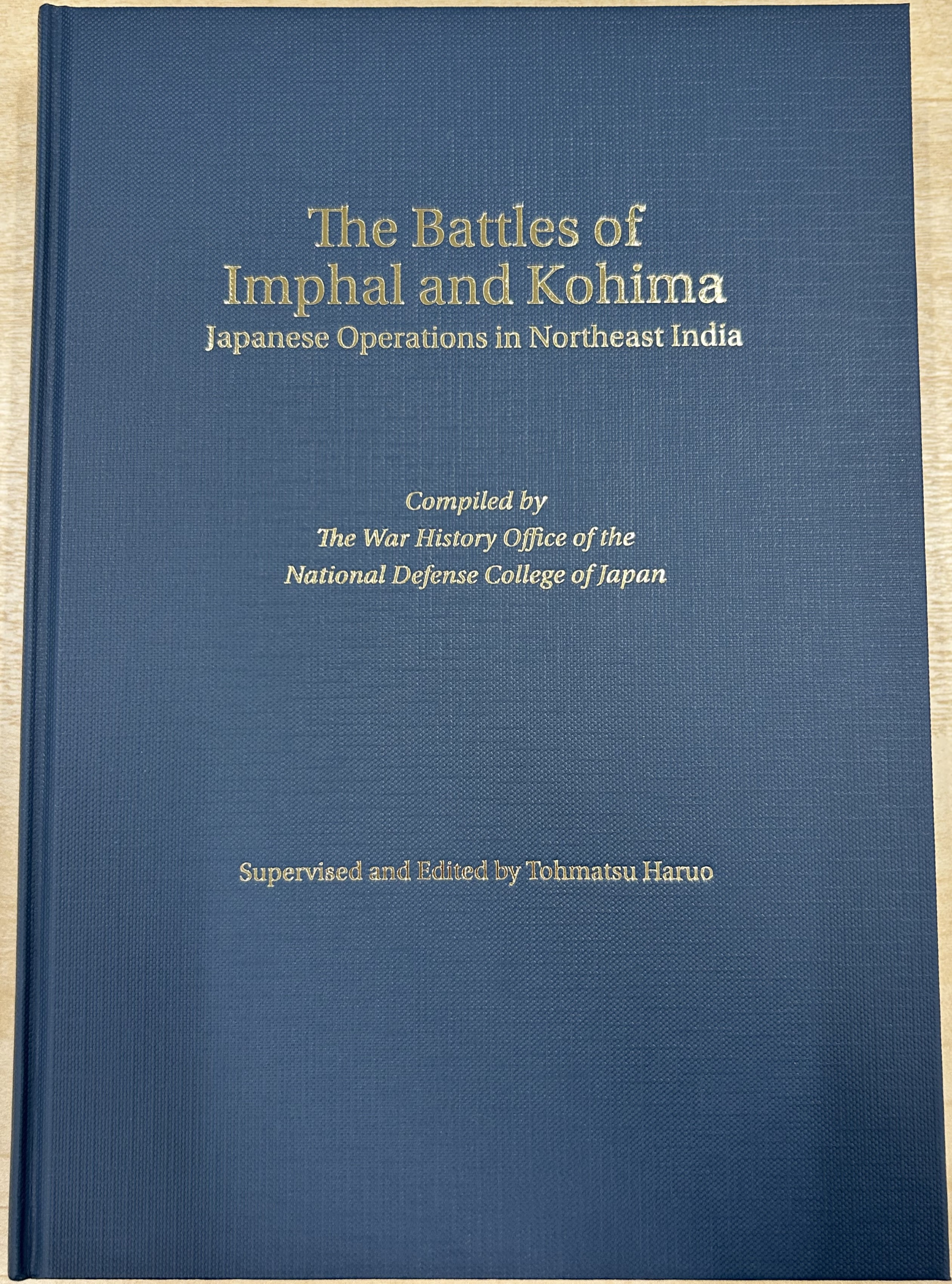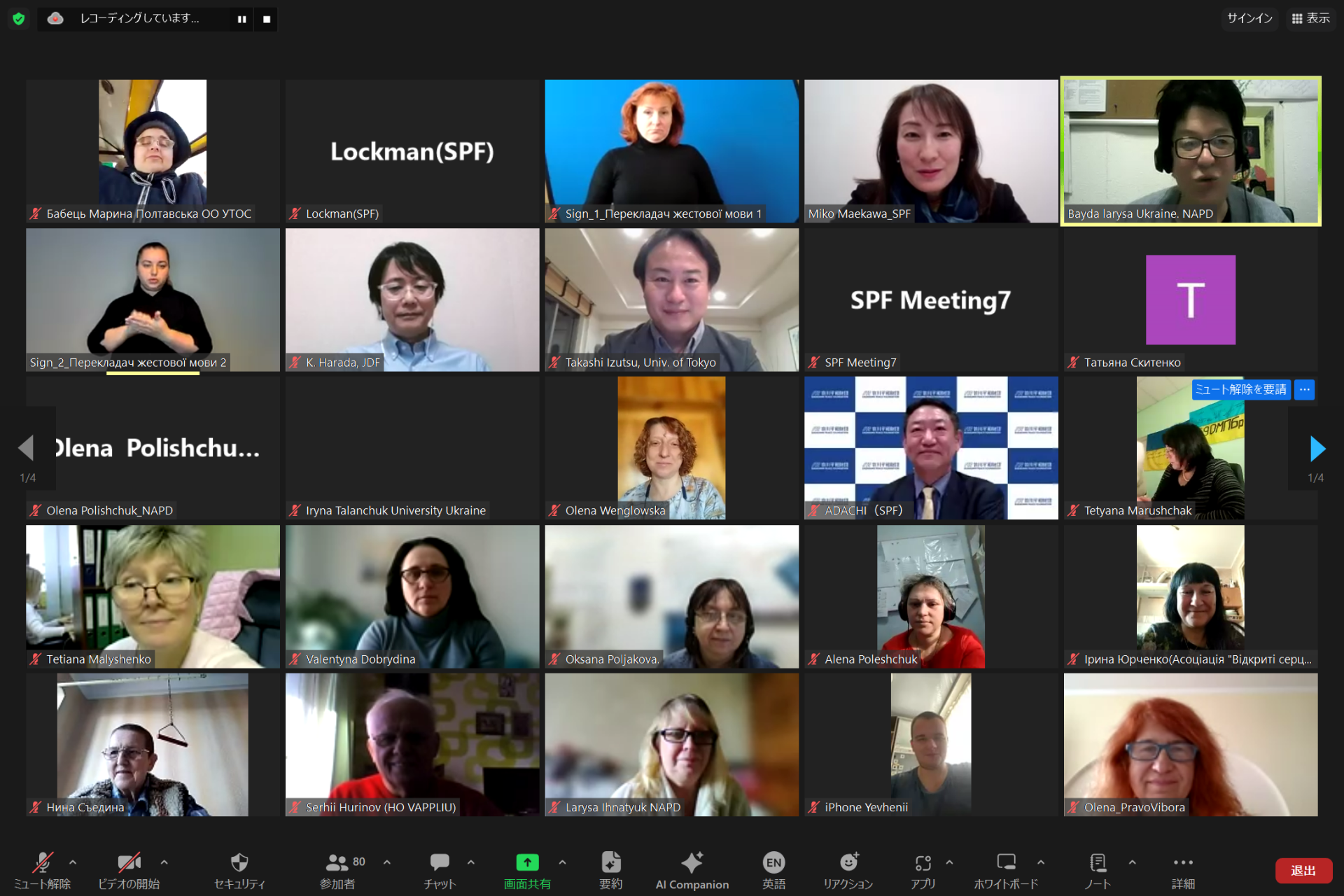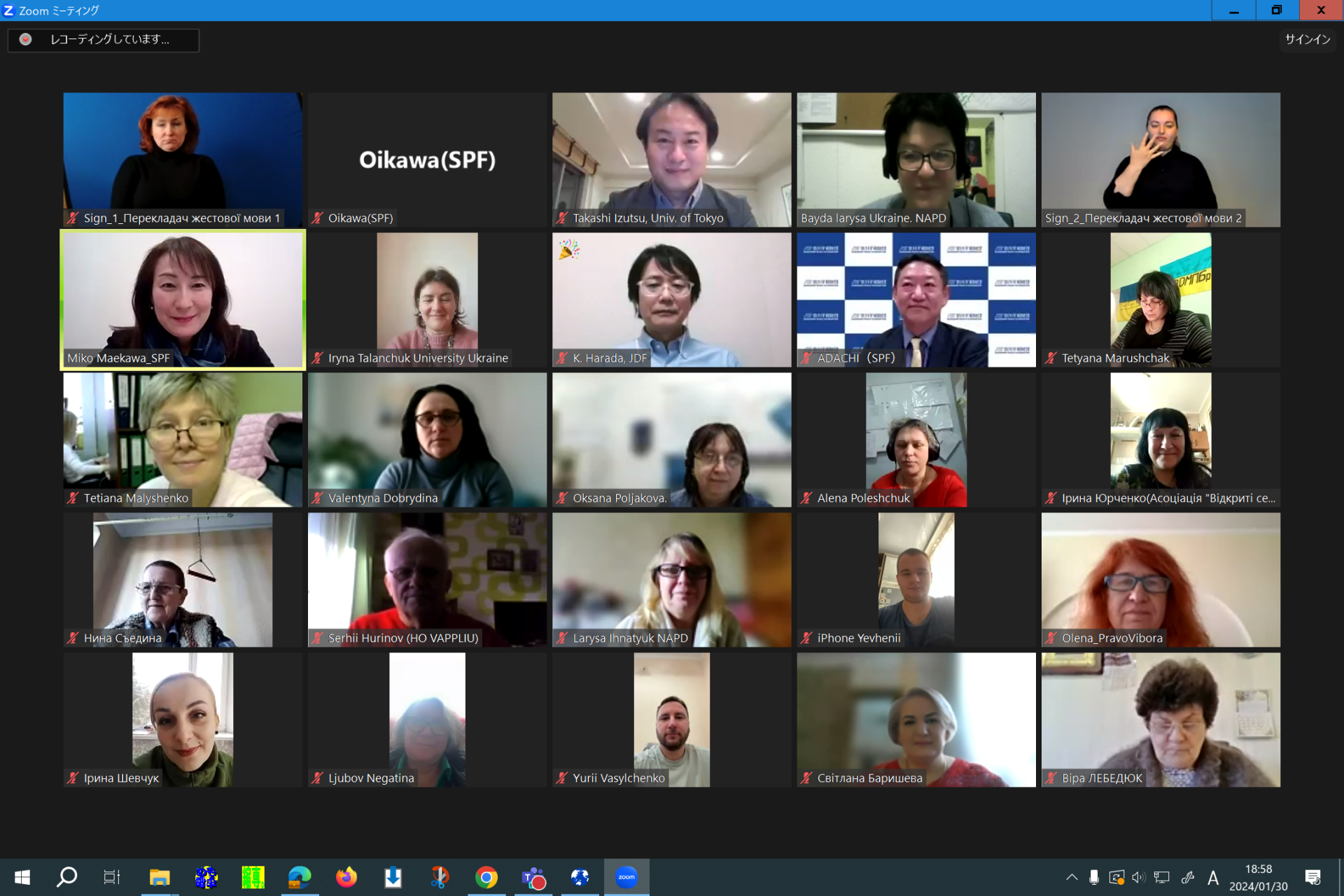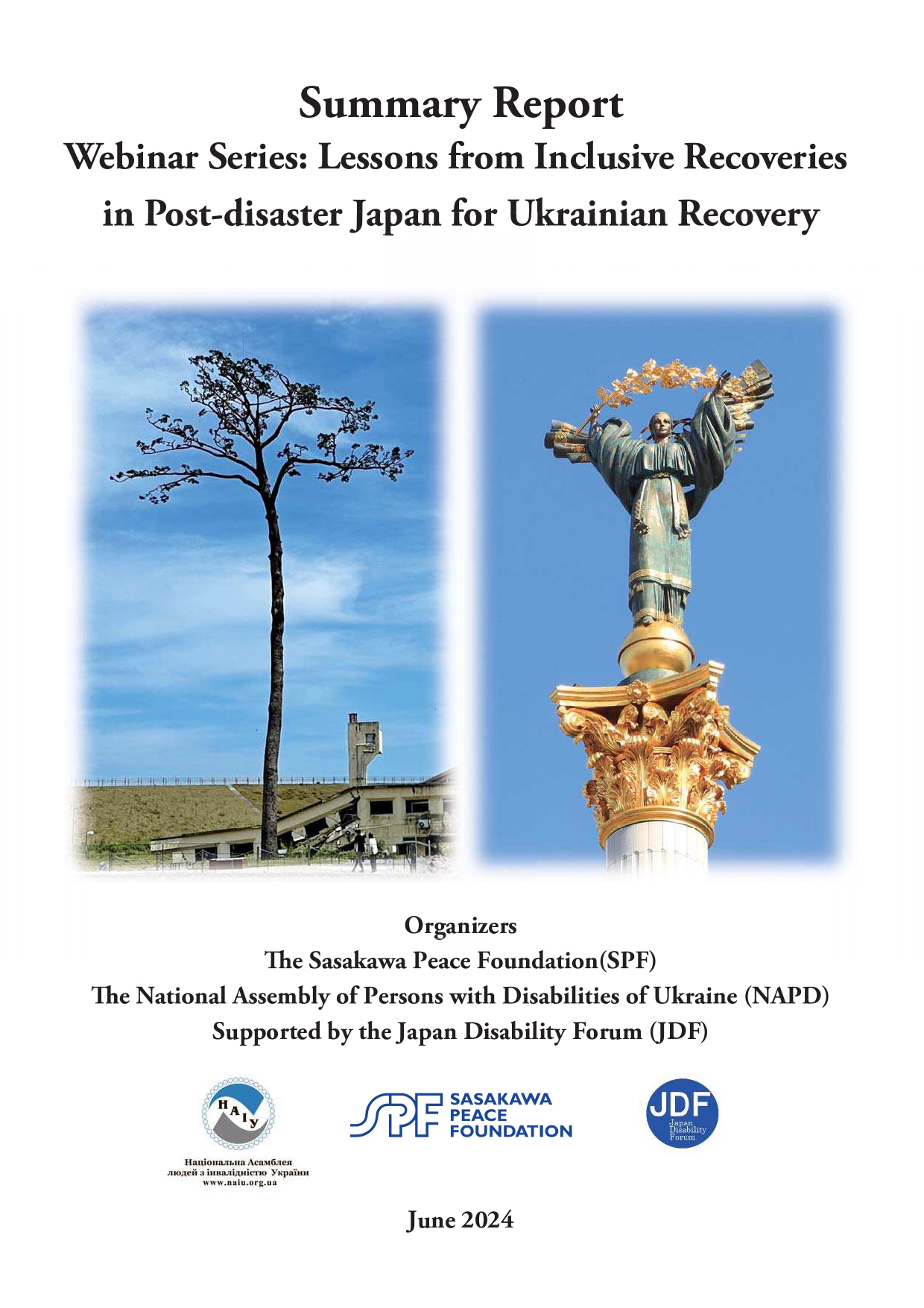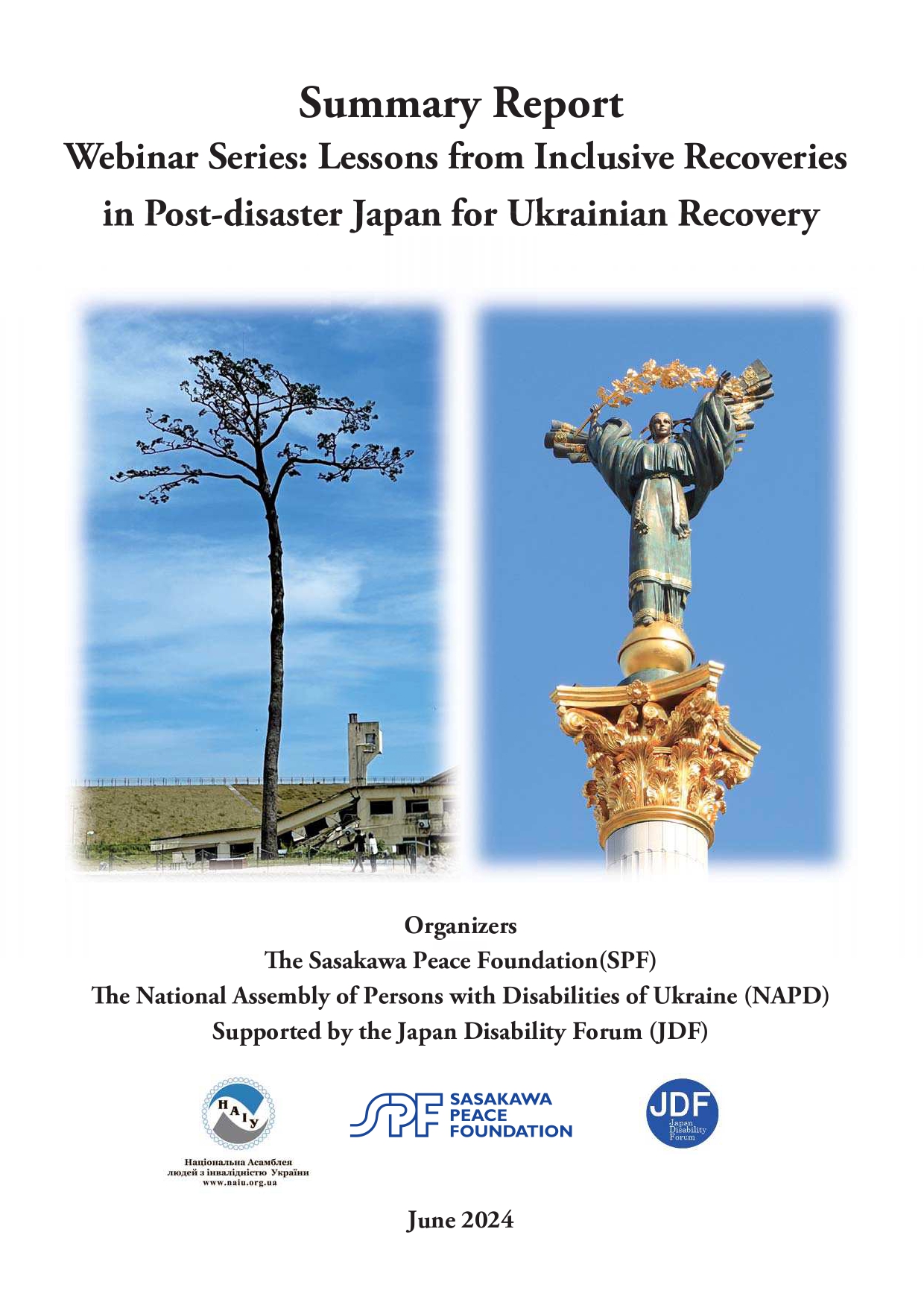The Sasakawa Peace Foundation (SPF), co-hosted by The National Assembly of Persons with Disabilities of Ukraine (NAPD) and supported by Japan Disability Forum (JDF), has organized a series of webinars during July 2023-January 2024 entitled "Lessons from Inclusive Recoveries in Post-disaster Japan For Ukrainian Recovery", as part of our support to Ukraine, which is still going through severe war damages. This webinar focused on supporting people with disabilities as a key issue in the recoveries of Ukrainian society, and aimed to share experiences and lessons learned from disaster recovery experiences in Japan. Based on lessons learned from Japan's recovery processes from the Great Hanshin-Awaji Earthquake and the Great East Japan Earthquake, experts from organizations for persons with disabilities, researchers, government officials, development aid agencies, and non-governmental organizations (NGOs) gave online lectures. The NAPD consists of 120 member organizations of public organizations, and it is a network of organizations that provides support to persons with disabilities in all regions of Ukraine. With the cooperation and invitation by NAPD, the webinar series provided an opportunity to exchange information and ideas with persons with disabilities, support organizations, NGOs, and local government officials from all over Ukraine. Each session was attended by 80 to 200 people from a wide range of backgrounds, with sign language interpretation in Ukrainian and Japanese provided, as well as Japanese transcription. It was also a valuable opportunity to learn about the current situations in Ukraine from Japan. We would like to express our gratitude to everyone involved. An overview of this webinar series is as follows.
[Duration]
July 2023 to January 2024 (6 sessions)
[Speakers]
*Affiliations and titles are as of the time of the presentation.
- Katsunori Fujii, Vice President of the Japan Disability Forum (JDF)
- Sakiko Kanbara, Professor at Kobe City College of Nursing
- Shigeo Tatsuki, Professor of Sociology, the Department of Sociology,
Doshisha University
- Kimio Takeya, Distinguished Technical Advisor on Disaster Risk Reduction,
Japan International Cooperation Agency (JICA) and Toru Kobayakawa,
Head of Office for Ukraine Crisis Response, Recovery and Reconstruction,
Middle East and Europe Department, Japan International Cooperation Agency
(JICA)
- Atsumi Sasaki, Chief Officer at the Section of Cultural Assets Management,
City of Rikuzentakata
- Yoshiyuki Aota, Representative of Specified Non-Profit Organization Support
Center Peer
- Takashi Izutsu, Ph.D., The University of Tokyo
Almost two and a half years after the Russian invasion of Ukraine in February 2022, some 10 million people are still displaced at home and abroad, and some 14.6 million are in need of humanitarian assistance [1]. Among them, many persons with disabilities are left behind in their settlements with inadequate medical, social, and support systems; according to International Organization for Migration (IOM) estimates, about 29% of the displaced people in Ukraine are living with family members who have one or more disabilities. At the same time, the number of persons with disabilities is expected to increase over the course of the war. On the other hand, Japan's past experiences with disaster recovery have also left persons with disabilities in a vulnerable position: according to an NHK survey, the mortality rate of persons with disabilities in the Great East Japan Earthquake (1.43%) was almost double that of able-bodied individuals (0.78%). A 2012 survey conducted by the Japan Disability Forum (JDF) revealed that persons with disabilities in the affected areas were left behind without means of transportation and were forced to purchase daily necessities. At the same time, it is a fact that the majority of disaster-related deaths were among the elderly and persons with disabilities. War and disaster are different. However, there are certain similarities in the composition of the destroyed society, the reconstruction needs, and the disabled who are often left behind in the process. In other words, lessons learned from Japan's disaster recovery experience can be applied in no small measure to the post-war reconstruction of Ukrainian society. From this perspective, we have developed the following nine policy recommendations for the reconstruction and realization of a more inclusive Ukrainian society, based on the information from the webinar lectures and related materials.
[Key Policy Messages]
- Involve persons with disabilities at every stage of recovery.
- Be aware of pre-existing inequalities and provide them with appropriate support.
- Reach out to the most vulnerable before disaster.
- Include local communities and encourage community care.
- Strategies should be context-based.
- Focus on non-economic factors.
- Be data-driven.
- Recognize the subjectiveness of persons with disabilities.
- Disclose information related to persons with disabilities promptly in times of crisis.
First and foremost, we pray that the war will end as soon as possible. We hope that the contents of this proposal will be used in the reconstruction process of Ukraine and the pursuit to realize a society in which "no one is left behind." The proposal can be downloaded from this link. The Summary Report includes, policy recommendations, scripts and presentation slides for each speaker, sets of policy recommendations by NAPD, and the Nippon Foundation and JDF respectively, a list of references, and a contact list of related organizations.
[1] UNHCR,
https://www.unrefugees.org/emergencies/ukraine/ (accessed 7/11/2024)
